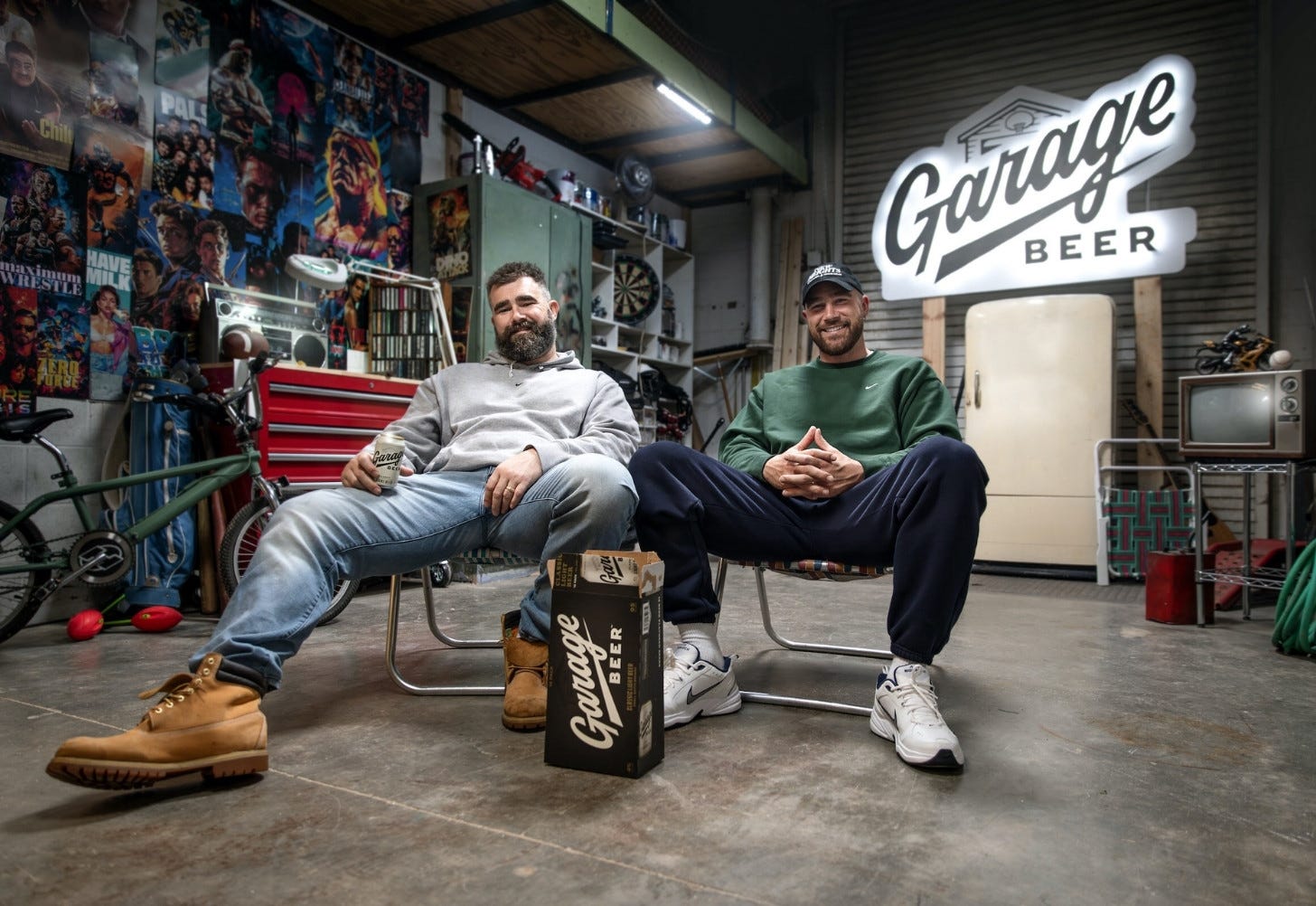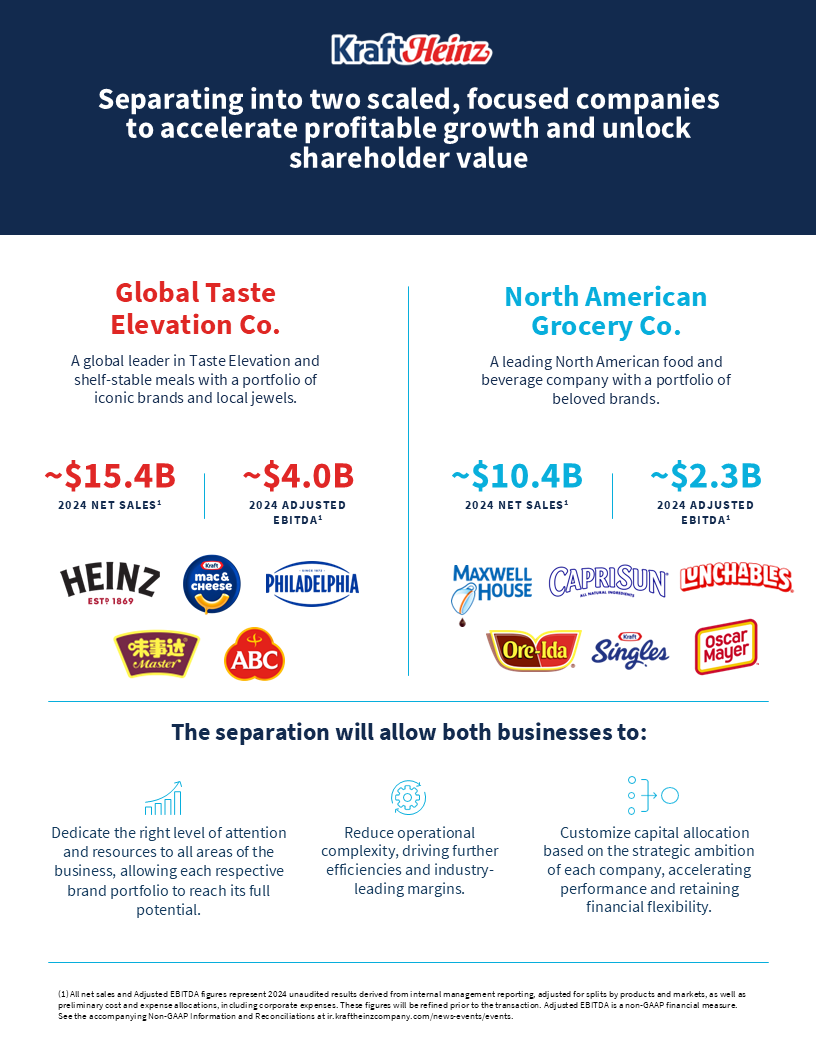The next wave of beer 🍻
Last week's biggest CPG and retail news
Welcome back!
This weekend, we recorded episode two of The Curious Consumer podcast—and it’ll be dropping later this week. We’ll be diving into the (wild) world of energy drinks, covering everything from the history of the first-ever energy drink to the future of energy (think brands like Bloom and Huxley) and why energy drinks are officially #forthegirls.
Make sure you subscribed on your listening platform of choice (Apple, Spotify) so you don’t miss the drop. And if you like it, it would mean the world to us if you leave a review (and if you don’t like it, feel free to email us directly). 😇
You can also check out the video version of episode 1 here 👇
Man Cereal, caffeinated chips, and the rise of wellness retail
Here we are—our first-ever podcast!!! After yapping via written word for almost 3 years, it’s time to go verbal (visual?) with our new pod, The Curious Consumer.
P.S. If you have any feedback, ideas, or guest ideas for future episodes, feel free to email us!
Now, let’s get into the news of the week →
News from the week
Last week, Travis Kelce made headlines yet again… and it had (almost) nothing to do with his status as TSwift’s side piece. 💁♀️
Garage Beer, a light lager brand co-owned by the Kelce brothers and CPG industry vet Andy Sauer, just hit a jaw-dropping $200 million valuation, jumping from under $20 million to an expected $70 million in revenue this year after Durational Capital Management announced its strategic growth investment in Garage.
Beyond the cash, this investment delivers a new name to the brand’s board of directors: Bill Hacket, the former chairman of Constellation Brands’ beer division and chief growth officer at Pabst Blue Ribbon.
This partnership positions Garage Beer to 300,000 barrels by the end of 2025, making it one of the fastest-growing independent beer brands in America.
But while everyone's focusing on the celeb clout, they're missing the real story: Garage Beer isn't just another famous-person-backed brand—it's a poignant exception to the doom and gloom that is the current world of craft beer.
As Doug Veliky of Beer Crunchers told us:
"Around 2015, which was the peak of craft beer euphoria, there was no ceiling in sight... During that time a lot of investment was made in the form of gorgeous new breweries that require a lot of volume and resources to operate and pay back." Now craft beer faces "more competition than it's ever faced" from hard seltzers, canned cocktails, and THC beverages—all fighting for shrinking shelf space.
The result? Industry paralysis. Roughly half of all tank space in America is sitting idle, with craft brewing utilization plummeting to around 61% and 57% of craft breweries reporting zero volume growth last year.
And consumer trends are making things worse. New Gallup data shows American drinking habits at historic lows:
Only 54% of adults now consume alcohol—the lowest rate in 90 years.
Those who do drink are drinking less frequently and in smaller quantities (~2.8 drinks per week, down from ~4 drinks just a few years ago).
And when 53% of Americans now believe moderate drinking is harmful to health (up from 28% in 2018), the last thing consumers want is to be lectured about hop varietals and barrel-aging techniques. 🙃
So how is Garage Beer thriving in this wasteland? The brand started as just another offering from Braxton Brewing in 2018, but became so fundamentally different that the founders spun it off into its own company in 2023.
The pivot was deliberate: they reformulated the recipe to remove hop bitterness, stripped "Braxton Brewing Co." from packaging, moved production to contract facilities with excess capacity, and maintained mass-market pricing—not craft premiums.
Yes, the Kelce factor amplified everything… When the brothers became majority investors in June 2024, their New Heights podcast (now with a $100+ million Amazon deal) became Garage's most powerful marketing engine. Travis's relationship with Taylor Swift sent female listenership up 618%, expanding the brand beyond traditional male beer consumers into new demographics craft breweries have struggled to reach.
…but the celebrity boost only worked because the strategy was already sound. Garage Beer's success stems from deliberately rejecting everything craft culture stands for:
Traditional craft breweries chase complexity through hop experiments and barrel-aging programs. Meanwhile, Garage Beer embraces radical simplicity: just two SKUs (Classic and Lime), 95 calories, 4% ABV, and messaging that literally calls itself "Beer Flavored Beer™."
And it’s not the only brand making waves for its simplistic approach that speaks to a specific audience: brands like GIRL BEER are doing this brilliantly. GIRL BEER’s founder, Ray Biebuyck, further explained the current state of anti-craft beer:
"In the 2000s/2010s, grocery shelves were organized by geography - local, regional, domestic, import. It felt a bit like wine or cheese, where origin mattered. But today, social platforms let new brands build national followings instantly, making those old definitions obsolete.
Meanwhile, the SKU overload—IPAs, double IPAs, stouts, lagers, etc., all often from the same supplier—creates clutter and confusion. Consumers today are conditioned to expect streamlined optionality—think Apple and iPhones. Beer shelves haven't caught up.”
As Garage CEO Andy Sauer projects expansion to all 50 states by year-end, Garage Beer proves that sometimes, simple wins. The brand that started as a craft brewery side project has transformed into something that challenges everything we thought we knew about American beer.
The future isn't more craft—it's anti-craft. And Garage Beer is leading the charge.
CPG & Consumer Goods
The great CPG shakeup continues. Kraft Heinz is planning to separate into two independent, publicly traded companies through a tax-free spin-off.
The two resulting companies will be:
"Global Taste Elevation Co." – A company focused on sauces, spreads and seasonings with approximately $15.4 billion in 2024 net sales and brands like Heinz, Philadelphia, and Kraft Mac & Cheese.
"North American Grocery Co." – A company centered on North American staples with approximately $10.4 billion in 2024 net sales and brands like Oscar Mayer, Kraft Singles, and Lunchables.
This move is similar to Kellogg's 2023 separation into two companies: Kellanova and WK Kellogg Co. Kellogg split its business to allow each entity to focus on distinct markets: Kellanova handling global snacking, cereal and noodles, and North America frozen foods, while WK Kellogg Co managed the North American cereal business. WK Kellogg was subsequently acquired by Ferrero for $3.1 billion in 2025.
Both separations reflect a broader trend among legacy CPG companies restructuring their portfolios to create more focused businesses that can better allocate resources, respond to market conditions, and potentially unlock shareholder value.
Other companies like General Mills and Conagra have made similar moves in recent years, divesting parts of their businesses to create more streamlined operations.
Gummy gains are here. SuperMush, a functional mushroom supplement brand, just launched a creatine + cordyceps gummy, taping into the growing demand for creatine.
Just last week, Bloom Nutrition joined Create (the OG creatine gummy brand, to our knowledge) and also launched a creatine gummy which is available on TikTok shop and at Target.
While we aren’t surprised to see another creatine gummy (we have a feeling we’ll be seeing even more creatine form factors in 2026…), what’s interesting about this launch is that it comes from a brand that’s mostly been focused on functional mushrooms. The combo of cordyceps + creatine feels like a blend of past + present—an early 2020s obsession with adaptogens, paired with 2025’s focus on amino acids.
I’m especially interested in this combo of “natural” ingredients (AKA mushrooms) and synthetic ingredients (AKA creatine monohydrate, which is produced in a lab). I personally think creatine is an awesome ingredient, but can’t help notice that Creapure seems to be accepted by some of the same folks who would run for the hills at the phrase “lab-made” in any other context. 👀 - J
Sephora goes teen-friendly. "Sincerely Yours," a teen-focused skincare line created by content creators Jordan Matter and his 15-year-old daughter Salish Matter (who have a cool 32MM YouTube subscribers), is launchingexclusively at Sephora. The line features four core SKUs, each priced under $30.
The teen skincare market is experiencing explosive growth as Gen Alpha floods beauty stores, driving demand for age-appropriate products that address young skin concerns without harsh actives. While Bubble Skincare has dominated this space with widespread distribution across Target, Ulta, CVS, and Walmart, new entrants like like Erly, YAWN WORLD, JB Skrub, Saint Crewe, and Evereden are racing to capture this lucrative demographic seeking gentle, fun formulations over the "anti-aging" products their generation mistakenly adopted.
A natural line extension. Coterie, the baby care brand, launched a new skincare line featuring a gentle cleanser, moisturizer, and protective balm.
Soup season is coming in hot. Long Weekend just launched its line of its premium instant soups at retailers nationwide (Wegman’s, The Fresh Market, and more) just in time for fall.
Long Weekend was one of our favorite brand finds discoveries from the Summer Fancy Food Show!! I quite literally gasped upon trying this soup—it tastes freshly made, but is actually a just-add-water miracle. Each soup is made with real ingredients (like, exactly what you’d use to make soup at home), then freeze-dried to stay shelf-stable for the long haul. I’m so excited to pick these up in store and have them at the ready for cold weather dinner emergencies!! - J
Convenient chicken ftw. The brand Easy Street just launched a new ready-to-cook chicken product tapping into demand for international flavors and convenience.
eCommerce
College kids and their snacks. The college social app Fizz is partnering with Gopuff to introduce grocery delivery, allowing students to order snacks and essentials within 15 minutes.
Tech on-demand. Best Buy has teamed up with Uber Eats to offer same-day delivery from over 800 stores.
Retail
Gap Inc. goes glam. Gap Inc. is expanding into beauty and accessories, with Old Navy launching beauty products in 150 stores this fall. The company sees these as high-margin opportunities to attract younger shoppers in a beauty market projected to exceed $100B this year.
The expansion of the century. Trader Joe's continues aggressive expansion with seven new U.S. locations announced, adding to 30 planned stores for 2025.
This comes on the heels of Aldi (who also owns TJ’s) massive US expansion. Consumers want ease, but most importantly consumers want lower prices (read: private-label-dominant retailers)!
Funding news
Let’s do some (wellness) shots. Magic Mind, the “mental performance shot” (AKA a ready-to-drink shot of nootropics, adaptogens, antioxiants, and time-release caffeine), secured $12.4 million in a nearly $16 million funding round to expand its retail footprint.
Magic Mind has evolved from a DTC darling (with over 30k monthly subscribers) to a nationwide presence in grocery stores including Sprouts, Erewhon, Publix, and Central Market.
Wellness gets a boost. Feel Goods, a modern nutrition brand, just raised $4.7M in seed funding led by Cutting Horse, with participation from Adapt VC, SuperAngel.Fund, Air Ventures, TA Ventures, and OpenSky Ventures to expand its wellness platform.
Make sure you’re subscribed so you don’t miss our next edition!









The comparision between Kraft Heinz and Kellanova's split is really on point. Kellanova showed that spinning off focused business units can unlock value fast, especialy when strategic buyers are circling. The fact that Kellanova only exsited as a standalone for about a year before Mars swooped in tells you everything. These spins aren't about long term independence anymore, they're basically setting up attractive targets for acquirers who want pure play assets without having to digest an entire conglomerate.